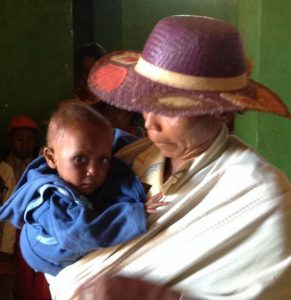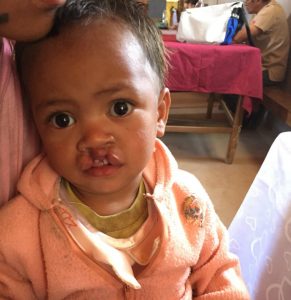
The short time that an LCMS Mercy Medical Team spends in the field is often the result of years of conversations and effort between the LCMS and another church body. The team’s actions and words during the trip can positively affect this relationship and bring the two churches closer together, or can damage relationships, causing rifts that can’t always be repaired. Because of this, our volunteers are told
Do not make promises, or appear to make promises to anyone. Do not give money or gifts or promise to send money or gifts later.
We often work through a language barrier that can lead to misunderstandings. Our volunteers must be careful in the language they use so that it does not appear that a promise for future gifts has been made. On a recent trip, a team member very innocently remarked, “We have several of this (equipment) at my work.” The local contact heard, “I’ll send them to you.” Innocent misunderstandings can cause disappointment on both sides.
Sometimes these guidelines are easy to understand. For example, on one trip a volunteer brought a package of balloons. He planned to blow them up and start some games among the children who were waiting for clinic to start. It sounded like harmless fun. Children love balloons, they love to play, and they love having something to do when they must wait for a long time. However, the local goats also love balloons, but for dinner, not play time. The goats eat the balloons, get sick, and maybe even die. Goats are an important source of food and income for families where we were serving. It’s easy to understand why we don’t want to harm them.
Other times, the guidelines are more difficult to understand. There is a man who needs surgery that costs less than the North American equivalent of dinner and a movie. There are children who are malnourished, and could be fed for a year on what some of us spend on our morning coffee for a month. Why would it be so harmful to help?
This is so very important, and so very hard. These are our dear brothers and sisters in Christ, and our hearts are moved with compassion for their difficult circumstances. LCMS Health Ministry is not saying don’t help, we are just asking you to offer the right help—in a way that builds up our local church partners. The most well-intentioned gifts, given in the wrong way, often end up hurting the recipient, the community, and the local church.

We want our brothers and sisters to rely on their neighbors in the church, rather than a handout from someone across the globe. Our goal is that those who are hurting would turn to the local Lutheran congregation, where the pastor and members can pray, support, and comfort them in a lasting way. During a recent clinic, we saw a young child who was two years old and weighed just six kilos (about twelve pounds). A member of the team was moved to provide enough food and nutritional supplements for the family to last six months. However, this was coordinated through the local church. Now, the family is visited by their local Lutheran pastor each week, who talks to them and prays for them and loves them. They have a real, lasting connection to the congregation, and through the church, to our loving God. What a blessing this is to both the family and God’s church!
The local Lutheran church partner is familiar with the families in the community, and the challenges that they face. One volunteer was blessed to have a supportive congregation, who sent 30 care packages with her for the local children. We offered them to the Lutheran pastor, who recommended that they not be brought to clinic. He explained that while the first 30 children would be happy to receive the gift, the next children in line would be jealous and feel unworthy. He told us how smaller children who receive gifts are sometimes targeted by other, bigger children who might take the gifts away by force. It would be divisive and disruptive, causing jealousy and division. Instead, he brought the team to visit the local school, where there were about 30 children enrolled. Everyone could share the joy and happiness, with no one left out.
Just like here in the United States, we unfortunately sometimes meet people on our trips who are not honest about their need. In one village, a woman would bring her crying baby to any visiting mission workers, asking for food for her hungry children. The local Lutheran church knew her, and knew that she was pinching her baby before knocking on the door to get more sympathy. Monetary gifts were taken straight to the local marketplace, and spent on alcohol. Food donations were taken to the same marketplace, and sold for cash to buy more alcohol. However, by going through the local Lutheran community, we can ensure that she and the children are fed—not only physically, but through the Word of God.
During the trip, immediate donations should be discussed with the local church partner. After the trip, it is just as important to direct gifts through LCMS Health Ministry. We can help you donate in a way that builds up the church, the community, and the individual. We can also follow up on the gifts to see how they were used. Unfortunately, we have occasionally found organizations who were asking several different donors to fund the same project. The donors don’t realize that the need has already been met—sometimes even through a grant through the LCMS. The LCMS doesn’t realize that individual donors have already provided the funds. While the money may ultimately be used for other needs in the community, it is best to address each need on its own merit. It comes naturally to our sinful nature to be tempted, and we do not want to lead our partners into the temptation to misrepresent their requests.

Often donors graciously provide funds to cover a needed surgery or medical treatment. This is wonderful and compassionate. This happened on a recent trip—a young child had a cleft lip that was preventing proper breastfeeding and interfering with her development. If the money was given directly, the family would have either walked the many kilometers to the hospital or tried to hire transportation. In that place, the hospital did not feed, wash, or monitor patients. Each patient needed a family member to stay with them. By going through the church, the local pastor was able to drive the family to the hospital for the surgery, check up on them while she was there, and follow up after she was home. The local church could care for the other children while the mother stayed at the hospital. Perhaps this contact will lead the family into a deeper relationship with the church.
It can be difficult to look into the face of a brother or sister in Christ and not respond immediately. However, by taking the time to direct our compassion the right way, we can build up our neighbor, the local church, and ultimately, the family of God. If you have questions about Mercy Medical Teams or church relations, contact me at tracy.quaethem@lcms.org. I’m happy to help.